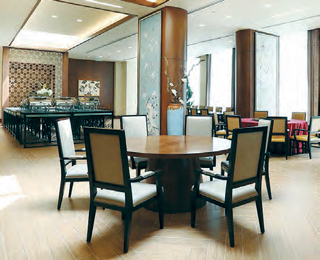
With more than 1 billion people, China has been dealing with its over-population problem for decades. And it is no different than countries like the United States, where seniors are among the fastest-growing demographic. Unlike the U.S., however, China has not focused on developing a senior living infrastructure to provide hospitality, medical care and oversight to its elders — at least until now.
Companies such as Wilson Associates recognize the dire need for an established senior living and long-term care blueprint in China and have planted the critical seeds of development for a series of communities dedicated to independent living, assisted living, skilled nursing and memory care. Most notable about these communities is that they are based on an upscale hospitality model that has become common in the states. With its background in hotel development, Wilson Associates — an international design firm — has taken a luxury approach to its senior living communities over the past four years. The concept, company officials say, “is to provide a new alternative to eliminate the stigma of living in a senior community.”
Although Wilson Associates has already added several projects to its growing portfolio, Design Director May Landau concedes that designing and constructing communities on a par with other developed countries “is just getting started.” Yet she also contends that China represents a vast, untapped market full of opportunities.
In metropolitan areas such as Beijing and Guangzhou, the need is greatest, which is why the initial developments have been located there. To accommodate the most residents, the communities are “new cities within the cities,” Landau says. Taikang Beijing Senior Community, for instance, is nine stories high with occupancy available for 200 independent living residents. For residents’ medical needs, a hospital is part of the campus.
Despite their enormity, attention to design detail is paramount, Landau says. For Taikang Senior Living Community Guangzhou, the design team “took careful consideration into the social needs of residents, creating communal areas and gather- ing spaces that bring together a lively color palette with thoughtful materials and lighting to create harmonious and practical spaces,” she says.
Although the People’s Republic of China has adopted some free-market principles in its economy, the government remains staunchly communist, and the central government dictates all policy within the country. Still, it has been nearly eight years since the government deemed long-term care and senior living to be a major livelihood issue, recognizing that standards and regulations were outdated, says Lei Berger, vice president for Wilson’s China operations in Shanghai.
“The launch of senior living communities throughout China is gradually changing people’s perceptions about moving into a senior living community and they’re integrating into their retirement plan,” she says.
The majority of the high-end senior living communities are managed by leading Chinese real-estate developers, top insurance companies and state-owned enterprises. The government’s role, Berger says, “is to establish supportive policies for attracting developers to invest, standardizing the industry norms for better management, and then ensuring that standardized industry norms are properly executed within its jurisdiction.”
From the February 01, 2018 Issue of McKnight's Senior Living



